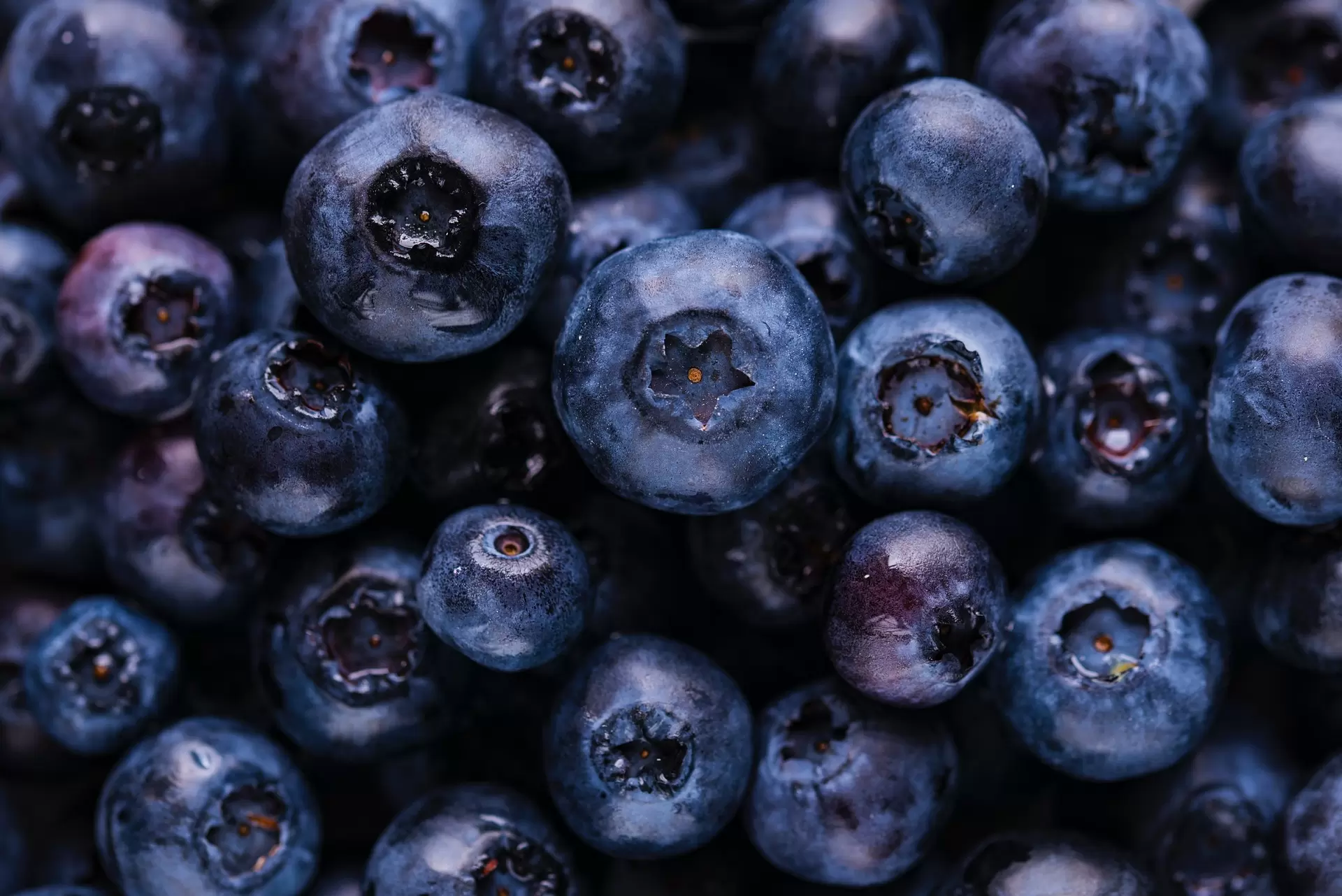

Blueberry plants are a stunning addition to a plot or garden with their white, bell-shaped flowers in spring and blue fruits in summer. In autumn, the leaves turn yellow, red and purple.
If you want to learn how to grow blueberries, we have an extensive yet easy guide for you.
We will provide all the necessary details from picking the ideal spot for the plant to the right time to harvest, ensuring you get a bountiful harvest.
If you want to join our online community, connect with likeminded growers and share your blueberry growing journey with us, sign up here!
When and Where to Grow Blueberries
Blueberries thrive in the sunshine in well-drained, moisture-retentive soil that is acidic. If your soil is not acidic, dig in plenty of organic matter, such as leaf mould, pine needles, conifer bark and other acidic organic waste. The reason for this is the acidic nature of the soil creates a breeding ground for bacteria and fungi, which releases ammonia and minerals that blueberry bushes love.
It is best to plant bare-root, dormant plants during winter to early spring in the UK. However, container-grown blueberry plants can be grown at any time.
Dig a hole twice as wide as the root ball and just as deep, gently loosening the soil to encourage root growth and establishment. Consider spacing the plants at least 4 to 6 feet apart to allow enough room for growth and air circulation.
The blueberry plant should not completely dry out or become water-logged either, striking a balance somewhere in the middle is optimal. Mulch around the base of the blueberry bush is recommended to retain moisture and suppress the weeds. Upon planting your blueberry bush, Water in well and create a hole deep enough for the root ball but wider enough for the roots to spread out.
Sometimes blueberries can be affected by the colder weather and wet weather and may require protection, depending on the variety and your location. You will also need to protect your blueberry plants in a fruit cage or netting to stop the birds from eating the fruits.
Pruning your blueberry plant is not necessary, other than to remove dead or damaged shoots and stems.
If you are wondering when to pick blueberries, you’ve come to the right placewe have got you covered!
You can begin to harvest blueberries in the summer, but this will be staggered over several weeks as they will not all be ready at once. It’s clear when tThe formed fruits are ready as they turn from green to blue!.
When harvesting blueberries, gently grasp the ripe berries between your thumb and forefinger, then give a slight twist to detach them from the stem. Avoid pulling too hard, as this can damage the plant. It's best to pick blueberries in the morning when they are cool and firm.
In your process of learning how to grow blueberries, trying out different varieties will broaden your knowledge of their unique characteristics and requirements.
Learning how to grow blueberries can help you open up different culinary opportunities.
Here at Allotment Online, we are a happy and growing community of allotment growers. We are here to support and guide you at every stage of your allotment journey, whether you're just starting or have years of experience.
We want to hear your blueberry growing tips, so sign up here and share your story on our blog page!
We offer valuable resources, tips, and guidance to help you succeed in your gardening journey. Whether you are wondering how to grow blueberries, blackcurrants, apricots or anything else, we will help you out!